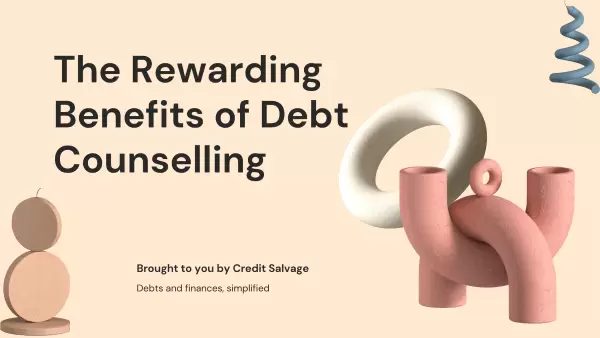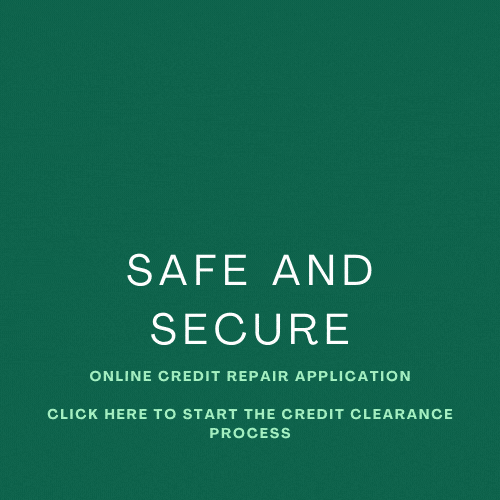Debt Review - Everything You Need to Know.
Debt accumulation is quite common, especially with the recent economic fluctuation and people being out of jobs due to the Covid-19 pandemic. Approximately 3 million individuals lost their jobs in South Africa after the pandemic hit.
Those who retained their jobs reported not having income during this period. Out of this statistic, women represented about two million of those who lost their jobs.
When lawyers or collectors come calling, you have no option but to comply and find funds to repay your overdue credit agreements. In some cases, this may seem complicated, especially if your debt-to-income ratio is high.
However, a debt review can help you pay back what you owe in a calculated manner to ensure you get to keep some cash for your daily use.
If this regulated debt repayment process is new to you, this article will provide all the knowledge on this process and why it is such a great way in combating over indebtedness.
What Is Debt Review?
This process refers to a formal rehabilitation program that provides financial advice to consumers generally paralysed with debt repayment. Such consumers tend to have a high income to debt ratio, affecting their timely monthly installment payments.
The process of debt counselling involves tasking your debt counsellor with the job of negotiating your debts with the respective credit providers. In addition, your debt counsellor will analyse your debts, income and help you create a payment plan for your debts.
What Are the Benefits of Debt Review?
There are numerous advantages. These benefits are not limited to:
Scheduled and reduced monthly repayments
Reducing your monthly repayments is one of the main benefits of this process. Your debt counsellor will negotiate with your creditors to lower your interest rates and extend your repayment period. This will significantly reduce the monthly amount you need to pay each month. This will make it easier for you to pay off your debts at a cheaper rate. Debt can accumulate quickly. It's common for people to spend more than they earn, which leads to debt. Having a lot of debt is difficult because you have no money to live on.
Legal Protection
The process ensures that a debt counsellor gets assigned to you, who negotiates with your credit providers on your behalf. As an example, if you were supposed to pay R5000 a month towards debt repayments, a debt counsellor would lower your monthly dues to R2500. This would ensure that you have enough money to cover your monthly living expenses. The scheduled and reduced payments will offer you much needed relief when paying back your debt.
This NCR regulated process provides you legal protection from your creditors. This means they cannot take legal action against you, such as repossessing your car or house or garnishing your salary. This can provide much-needed relief and give you time to get your finances in order. Sarah, a single mom dealing with overwhelming debt, especially payday loans, sought help through this Credit Salvage process. With the assistance of our debt counsellor, Sarah was able to negotiate reduced monthly repayments and legal protection from her creditors. This allowed her to regain control of her finances, avoid legal action, and work towards a brighter financial future for herself and her family.
Creditor providers and debt collectors can no longer harrash or contact you.
Another advantage of debt counselling is that your creditors cannot contact you directly once you are under debt review. All communication will be handled by your debt counsellor, giving you a break from constant calls and letters from creditors. This is significant because creditors cannot harass you or pressure you into paying a certain unreasonable amount on your debt. Having a mediator between the debtor and the creditors is crucial to the debt review process. It also helps to establish clear communication channels and ensures that negotiations are conducted in a fair and unbiased manner. The presence of a debt counsellor provides a sense of protection to the consumer, as they no longer have to directly face the pressure and harassment from creditors. Debt review gives you the time and space to focus on repaying your debt in a responsible manner without the constant pressure of creditors.
Reduced Interest Rates
Debt counselling also accords you with the benefit of enjoying reduced interest rates on your loan. Failure to pay back your credit agreements on time results in interest accumulation, making it challenging to repay your loan.
Your debt counsellor will negotiate with your creditor on your behalf for reduced interest rates. The result ensures that more of your money goes into payment of the principal amount and not the interest.
Simplifies the Process
If you have several accounts to repay from different creditors, it is common to lose track of due payments and you no longer need to juggle various debt obligations and due dates. With a debt counsellor, you get to pull together all your financial accounts and only make one payment instead of having to make several payments.
Physiological and Stress Relief
The overwhelming feeling of not being able to repay all your credit agreements can have a physiological effect on you.Furthermore, over-indebted consumers may not have enough income to service their accounts on time, negatively impacting their mental health.
Debt can have significant psychological effects. This structured process can alleviate the stress associated with debt by providing a clear path to becoming debt-free. Reduced stress levels can improve overall well-being and allow you to focus on other aspects of your life.
According to recent studies, this process has shown a success rate of around 70-80% in helping individuals become debt-free. This program provides a structured and manageable approach to debt repayment, reducing stress levels and improving financial management skills. With the support of our debt counsellor and the streamlined payment system, consumers now have a higher chance of successfully overcoming their debt. This will enable them to achieve long-term financial stability.
Our debt review program helps you service part of your loan while saving money to support your living expenses and daily needs. Testimonial: "I was drowning in debt and didn't know how to escape the cycle. But thanks to Credit Salvage, I was able to make manageable monthly payments and work towards becoming debt-free. It was a structured and manageable approach that reduced my stress levels and improved my financial management skills. Now, I'm finally on the path to long-term financial stability."
A Better Alternative to Sequestration and Administration
Most people who cannot repay their credit agreements opt for administration and sequestration to wade off the creditors. Unfortunately, these two processes take a considerable amount of time for approval. In addition, creditors will still be knocking on your door demanding payment.
A healthy alternative is a debt review process. Debt counselling ensures that you still get to retain your assets and exercise entire administration over them while paying back all your credit agreements in a flexible manner.
Avoid Creditors
A debt review program will negotiate with creditors on your behalf. This way, you don't have to answer calls or emails asking when you plan to pay back your debt.
Restoring financial dignity
There is nothing more humiliating and isolating than being in debt. Restoring financial dignity is crucial for consumers who have experienced the humiliation of being overindebted. With our personalised assistance, we provide a supportive and structured approach that allows consumers to regain control of their finances. We also assist our clients rebuild their creditworthiness, and ultimately restore their sense of dignity and self-worth. Paying off your debts gives you a sense of control over your finances and a sense of confidence.
In highlighting these additional benefits, South Africans can see that debt review offers a broader range of benefits than just reduced repayments.
Essential Items to Know About Debt Review
Pulling yourself out of a debt trap entails specific things an individual should be aware of. Some of these items include:
Will you qualify for this process?
Not everyone can qualify for our debt counseling program, despite it being an ideal option to help consumers who are in debt. The following factors are taken into consideration when determining if you qualify:
Source of regular income
Number of accounts
Outstanding balances
Living expenses
You are not eligible for debt counselling if you have too many accounts with too little income. Credit providers will only accept a restructuring if the repayment period is not too excessive. Therefore, even if you meet the other qualifications for this program, you may not be eligible if your outstanding balances are too high and your income is too low to repay the debt within a reasonable timeframe.
According to NCR regulations, unemployed individuals are unlikely to qualify for this program unless they have a high probability of finding employment in the near future. Example: If the consumer is currently unemployed but recently wentto a job interview and has a high likelihood of receiving an employment offer, they may still be considered eligible for the debt counseling program. Employees, on the other hand, are guaranteed a monthly income, which allows them to pay down their accounts over time.
In addition, if your creditors take legal measures against you for lack of payment, you may not be eligible for a debt review program. For this reason, it is essential to seek a assistance before creditors take necessary legal steps.
Creditors Won't Take Legal Action!
Signing up for a debt counselling program means that your creditors will not be able to take any action against you. Therefore, it will create peace of mind for you to focus on other activities instead of the constant worry of asset repossession or legal action.
Once you clear your debt, the debt management company will issue you a clearance certificate stating that you are out of debt. This clearance certificate will then help you apply for future loans.
Monthly Payments Are Reduced
Signing up for a debt review program means that your monthly debt repayment amount decreases to an amount you can afford. Debt accumulation may render it impossible for most individuals to have enough money for sustenance.
With debt counselling, your counsellor weighs how much you owe versus your expense and income. These figures will help your counsellor develop a percentage that will allow your debt to continue repayment while you still get to afford your living expenses.
Debt Counselling Isn't Free!
A debt review program is an essential service that takes the load off your debt repayment. This work involves constant communication with creditors.
Some of the fees you will have to pay are application fees and ongoing administrative fees. You will be required to pay the application fee before joining the program.
The administration fees are monthly-based payments that debt counsellors offset from your monthly installment. So, for example, if you pay R1 500 to your debt counsellor, they may take R200 for administration fees and give the remaining R1 300 to your creditors.
You Can't Take More Credit.
This program prevents you from taking on additional debt from creditors. This program ensures that your current credit providers are treated fairly by not accepting concessions while you make arrangements with other creditors. Debt review helps to create a balanced and manageable repayment plan, benefiting both you and your credit providers. A restructured monthly payment plan is assigned to you as part of the program, and you must pay it or risk termination.
As soon as your debt is cleared, we will provide you with a clearance certificate. After that, you can apply for a loan from a credit institution or a private individual.
Longer Repayment Period
We will reduce the amount of money you need to pay your debts each month. Although it reduces your monthly debt repayments, it prolongs your overall debt repayment period. You may pay your debt for years depending on your outstanding balances. One strategy to accelerate debt repayment despite lower monthly payments is to allocate any additional income or windfalls towards your debt.
This could include bonuses, stokvel income, tax refunds, or extra income from a side business. Another strategy is to prioritise high-interest debts and repay them first, while making minimum payments on other debts. This way, you can save on interest costs and pay off your debts faster. It is easy to contact us here at Credit Salvage, and you can speak to your debt counsellor about this.
You Can't Skip a Payment without having a valid reason.
While on a debt repayment program, it is essential to stick to the payment plan that your debt counsellor provides. Failure to adhere to the monthly payments can result in a nullification of your entire payment plan.
This debt restructuring process will be successful if you diligently pay your monthly installments to your debt counsellor appointed Payment Distribution Agent. If you cannot make a monthly payment, it is necessary to notify your debt counsellor to allow them to make the required adjustments to your payment plan.
Setting up a Business
While it may not be advisable to start a business while your debts are being restructured, the process does not hinder you from setting up your business. However, it is essential to stay focused on repaying your debt to avoid terminations and legal action.
Starting a business while still under debt review can result in bankruptcy and an impaired cash flow for your business.
Credit Record
The benefit of signing up for this program is that your debt accumulation will not be a permanent record on your credit history. In addition, unlike blacklisting, where it is impossible to clear your name, a debt review program can help you wipe your credit history with a credit bureau clearance certificate, deeming you eligible to apply for future loans.
Debt Review Steps
The following is a breakdown of how the process works.
Find a Debt Counselor
The first step in the process is locating a company to walk you through your repayment process.
There are plenty of debt counsellors in the market. Before hiring a debt counsellor, you should check that they have obtained registration with the National Credit Regulator. Debt counsellors cannot provide the service of debt counselling without prior approval and accreditation with the National Credit Regulator.
A debt counsellor that is not registered may fail to remit your repayment to respective creditors, costing you more money.
To find out if the the company is reputable, you can check their website for reviews and feedback on service delivery and creditors' relations. In addition, you can check the NCR website to find out whether they are registered.
Complete an Application Form (Form 16)
Once you confirm that your debt counsellor is credible and duly registered, you can proceed and fill out an application for inclusion in the debt review program. Your debt counsellor will provide you with the application form, commonly known as form 16.
Once you complete filling out the form, you need to attach the following documents to accompany your application:
- Bank Statements
- ID copy
- Power of attorney
- Pay slip
- Account statements.
The debt counsellor will use these documents to analyze your financial status and ascertain the extent of your debt and capacity to pay it back.
Your debt counsellor will prepare a budget and a proposal for clearing your debts based on the analysis. The budget and the proposal will help you retain some amount to support your daily living expenses.
Debt Assessment
At this juncture, your debt counsellor will assess whether you are over-indebted and examine whether there have been incidences of reckless lending.
A timeline of 30 days is given to the debt counsellor to gather all the necessary documentation from the credit provider and counsellor to complete the debt assessment.
Notify Creditors of Your Debt Review application
Once you submit your application to the debt counsellor, your debt counsellor should notify your creditors of your application. The notification gets sent by using form 17.1.
The form will require your creditors to provide details of your balance. The creditors will provide statements in the form of a COB, Certificate of Balance. The certificate of balance will have the following information:
- Account number
- Account Type
- Surname and Name
- Details of Creditor including the registration number
- Monthly Installment
- Outstanding Balance
- Arrear's amount
- Insurance amount
- Interest rate
The COB provides enough details for your debt counsellor to utilize when providing a suitable proposal to your creditors.
Debt Counselor Declares Your Status
After reviewing your application and the Certificate of Balance, your debt counsellor can now declare whether you are over-indebted or not.
If you are indebted, the debt counsellor sends a notification form of 17.2 notifying your creditors that your debt review application was successful.
Suppose your debt counsellor renders you not to be indebted. In that case, a similar form will be sent to your creditors by your debt counsellor, notifying them of your unsuccessful application for the program.
Upon approval of your debt review, your debt counsellor will provide a proposal with the following information:
- Account number
- Name of the credit provider
- Original interest rate before debt review
- Initial installment rate before debt review
- Proposed new interest rate percentage
- Proposed new restructured installment
- Number of months for repaying the debt
- Procedure detailing how you will repay the debt.
Your creditors will reply to the debt counsellor within ten days by either accepting the proposal or making adjustments.
Consent Order
After that, the debt counsellor shall approach the courts to obtain a consent order within 60 days after submitting your application. The consent order bars your creditors from taking legal action against you.
Payment of Reduced Installment
Most debt counsellors have payment distribution agents whom you pay your reduced or restructured installment. However, it is essential to note that you are eligible for debt counselling removal if you fail to abide by the monthly structure installments and your proposal becomes nullified. In addition, creditors have the liberty of taking legal action against you.
Clearance Certificate
Upon completing your debt payments, the debt counsellor will issue you with a clearance certificate and notify the credit bureau to clear your name from the credit bureau in South Africa, the National Credit Regulator, and all credit providers.
When blacklisted, clear your name by signing up for a debt counselling program and obtaining an ITC clearance.
Debt Review Removal/ Debt Counselling Removal
Debt review programs are voluntary, and you can't opt out at any time. There is, however, a process for leaving debt counselling, as it is a regulated program. If there was no court order granted in terms of the debt review process, you will be able to remove the indicator and leave the debt counselling program. However, if a court order was granted, all debts need to be fully repaid before you can exit the program.
Most consumers will decide not to participate in this program after their financial situation stabilises or they desire to make new credit.
Your first step should be to inform your debt counsellor that you intend to leave the program. After explaining the consequences of leaving the program, our debt counsellor will determine whether you are eligible to exit.
You can only exit the program when:
No Court Order Has Been Given.
Once a debt counsellor approves your application and notifies your creditors, you can opt out of the repayment plan provided a court order has not yet been issued.
The consequence is that your creditors can take legal action against you if you are in arrears.
You will need to provide information to the courts about your change in financial situation, which will bring your debt review program to an end.
A Court Order Has Been Issued.
When a court order is in place, it will be challenging for you to exit the program. The only option you have is to fast-track your payments to settle all your debt accounts.
It is essential to stay connected with your debt counsellor to understand if a court order has been issued. Then, as per the legal procedure, you should sign a confirmatory application provided to you by your debt counsellor.
If you fail to sign the form and submit it to the courts within 60 days, creditors can take legal action against you since the agreement has not yet been deemed legal.
If your financial status has improved, it is essential to notify your debt counsellor to amend your standing so as not being over-indebted.
When Should You Consider Debt Counselling?
Debt repayments can take a toll on you. You can easily transition from someone who can make ends meet to someone struggling to meet daily needs. If you are in one of the situations below, then you should consider applying for a debt review program:
Can You Save Money?
If you end up working, earning income but barely having any amount to saveon the side, a debt counselling program is right for you. It is advisable to always have an emergency fund in case of any future incidences such as medical expenses.
If you cannot save for an emergency fund, you can easily fall into debt sooner than expected.
Do You Have Sleepless Nights?
Do you find yourself staying up at night trying to devise ways to repay your debt? It is a sign that your financial situation cannot cater to your piling debts.
Seeking counsel from a debt management company can help set you on a smooth course to repay your debts.
Do You Depend on Credit to Cater for Daily Expenses?
If you find yourself living from credit to credit, then it is a clear sign you need the services of a debt counsellor. Taking out loans to cover basic needs such as water or food can further put you in debt. Relying on credit means more of your income goes towards servicing your accounts, which ends up prolonging your repayment process.
Are You Unable to Make Timely Payments?
If you are already receiving numerous calls and emails on your overdue payments, you are in the cycle of debt. You need to review your finances and also talk to a debt counsellor about the best course of action to take
Is A Debt Counselling Program Right for Me?
Debt repayment through a debt management company may take years for you to finalize. But the process ensures that you get to retain you access and cater to your daily needs.
A professional debt counsellor will walk you through paying your debt and provide financial counselling to help you manage your money after completing your debt review program.
We are a professional debt counselling/ debt review and credit clearance organization offering services on credit clearance, settlement negotiations, credit reports, and debt counselling. Contact us today to find out more about how debt review can change your life.




